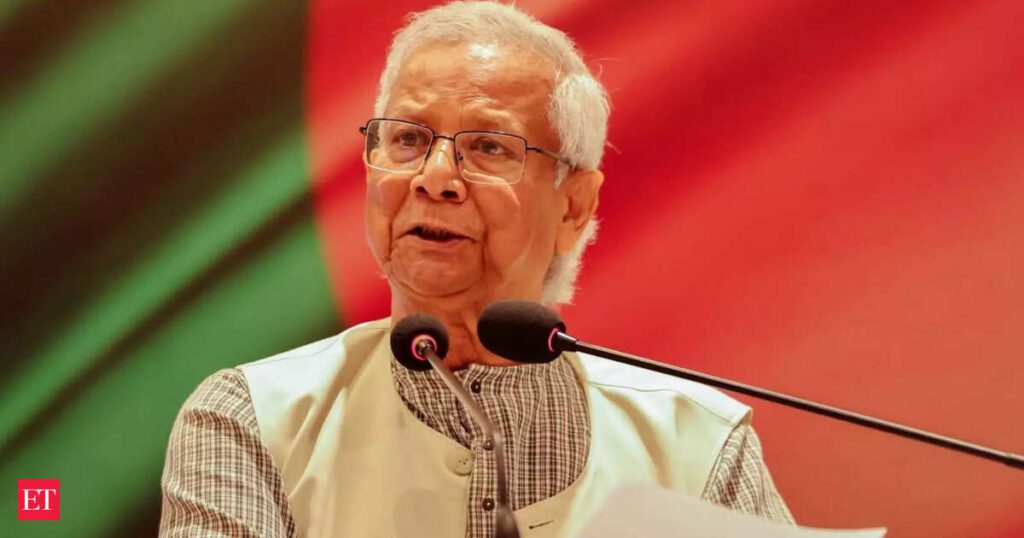“I am announcing to the citizens of the country that the election will be held on any day in the first half of April 2026,” Yunus said.
The 84-year-old Nobel Peace Prize laureate currently heads the caretaker government that assumed power after the ouster of former Prime Minister Sheikh Hasina in August 2024, following a mass uprising.
This will be the first national election since the fall of Hasina’s government. A specific polling date has not yet been announced.
Uprising toppled Hasina, ushering in Yunus-led interim rule
The current caretaker government was installed after mass student-led protests in mid-2024 forced long-time Prime Minister Sheikh Hasina to flee to India. The uprising, which turned violent, ended more than 15 years of Awami League rule and ushered in Yunus as head of an interim authority tasked with restoring stability and preparing for elections.
Since then, however, the administration has struggled to manage competing demands from political parties and civil society. The registration of the Awami League was suspended this month, effectively disqualifying it from contesting the next election. The move drew criticism over lack of political inclusiveness. Yunus’ office has warned of attempts to destabilise the government following the ban, with his press secretary describing the situation as “war-like.”Meanwhile, Hasina’s son Sajeeb Wazed accused Yunus of pursuing a “politics of vengeance” in a social media post.
Reform delays and rising unrest raise stakes
Yunus had initially indicated elections could be held between December 2025 and June 2026, but political forces demanded greater clarity. The Bangladesh Nationalist Party (BNP) pushed for polls by December, warning that continued support for the interim government would be “difficult” without a definitive timeline. Army chief General Waker-Uz-Zaman also backed year-end elections and expressed unease over the political gridlock.
At the same time, the newly formed National Citizen Party—born out of last year’s protests—has insisted that elections must wait until promised institutional reforms are completed.
Progress on those reforms has been slow. The government created a National Consensus Commission (NCC) to build agreement on proposals such as restoring the caretaker government system and strengthening judicial independence. While some measures enjoy broad support, others—like constitutional changes and a bicameral legislature—remain divisive. A second round of talks with political parties is scheduled for early June.
Law and order concerns have intensified with growing protests by civil servants, teachers, and activists disrupting daily life, especially in Dhaka. The public remains wary of escalating tensions in the absence of political agreement.
(With inputs from Reuters, AFP)


